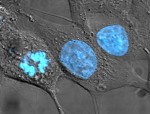There’s a new survivor on TV and she means business.
In the latest episode of The Office, Kathy Bates walked into the Scranton branch of Dundler Mifflen and onto my living room TV screen as Jo Bennett, CEO of Sabre, a fictitious Tallahassee-based company. An assistant and two large canines accompany her as she meets the crew. She’s firm, graying and very much-in-charge.
When the camera gets her alone, in focus, here’s what she has to say:
“I’m Jolene Bennett, Jo for short.
“I’m a breast cancer survivor, close personal friends with Nancy Pelosi, and Truman Capote and I slept with three of the same guys. When I was a little girl I was terrified to fly, and now I have my own pilot’s license.
“I am CEO of Sabre International and I sell the best damn printers and all-in-one machines Korea can make.
“Pleased to meet ya.
Posted in Breast Cancer, cancer survival, Reviews, TVTagged Breast Cancer, breast cancer survivor, business, health, Kathy Bates, survivor, The Office, TV, Women's Health, workplace


